War with Iran
Dear Friends,
I’m working on some more Postcards about my time in Palestine. They’re not ready yet, but I thought I’d write today about what I’m hearing from friends in the West Bank and Jerusalem these days, following Israel’s attack on Iran. I won’t use anyone’s names.
The whole world is holding its collective breath, waiting and watching. The West Bank is on lockdown. Roads are closed, and even checkpoints are closed - Palestinians may not move around. This is not for the protection of Palestinians, who live under Israeli occupation. Instead, the Israeli military describes it as a ‘preemptive’ closure.
Why does Israel call the closures ‘preemptive’- and why did they describe the attack on Iran in the same way? This is because Israel frames its actions as ‘defensive’. If Israel attacks, they say it is a response to aggression that happened in the past; if it’s not something that happened in the past, Israel tries to portray its actions as defensive by saying it’s a ‘preemptive’ attack - to thwart an aggression in the future. In either case, Israel says it is under (past or future) attack - even when they are the aggressor.
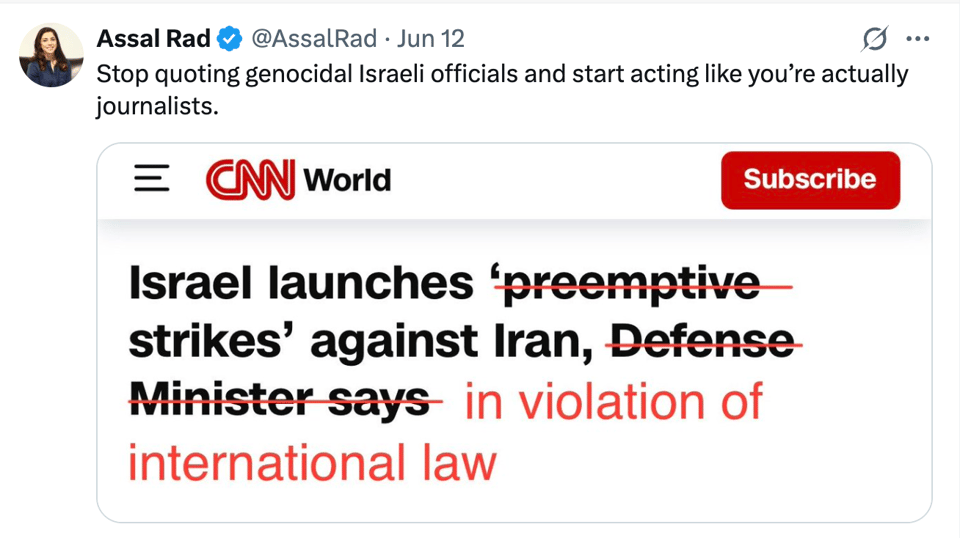
In Jerusalem, the Israeli military has closed Al Aqsa mosque (an important religious site over which it does not have legal jurisdiction). And only residents of Jerusalem’s Old City are permitted to go in or out; the rest of the city remains open.
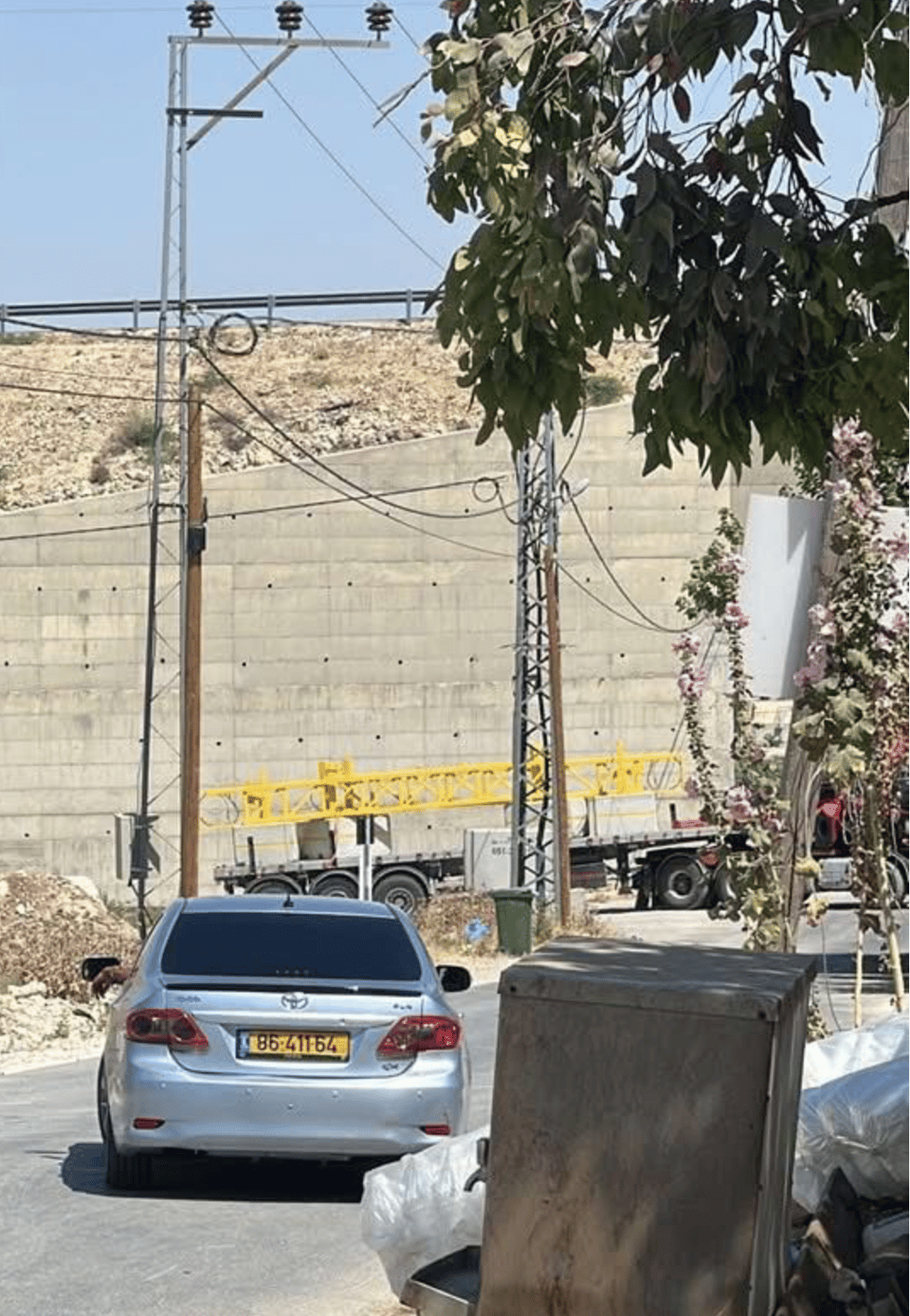
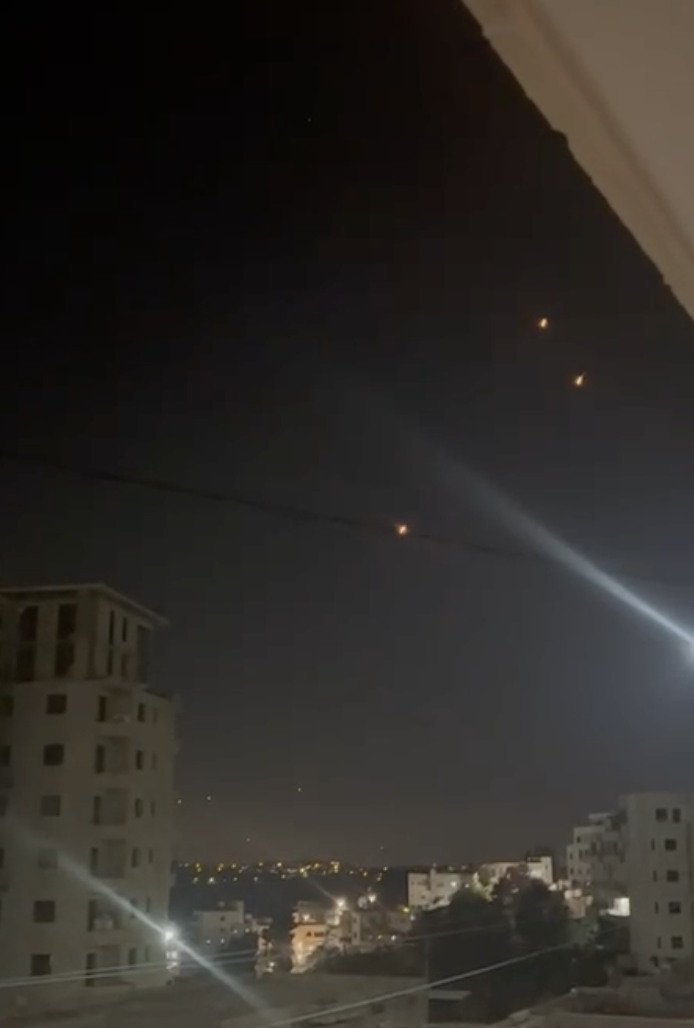
We all hear Israelis describe the terrible fear they feel hiding in bomb shelters. Palestinians face the same fears, from the same bombs - but there are virtually no bomb shelters in Palestinian areas of the West Bank. And the threats to Palestinians come not only from Iranian bombs and from debris from Israel’s Iron Dome rockets. The dangers come most directly from the Israeli military, which intensifies its brutality against Palestinians in times of increased tension. One person told me, Israeli soldiers are always more angry at times like this. Roads are closed. At the few functioning checkpoints, harassment of Palestinians intensifies.
The Israeli military has killed more than 943 Palestinians, including more than 200 minors, in the West Bank since October 7, 2023. (If your news sources haven’t covered these deaths, you might consider expanding to some other sources.)
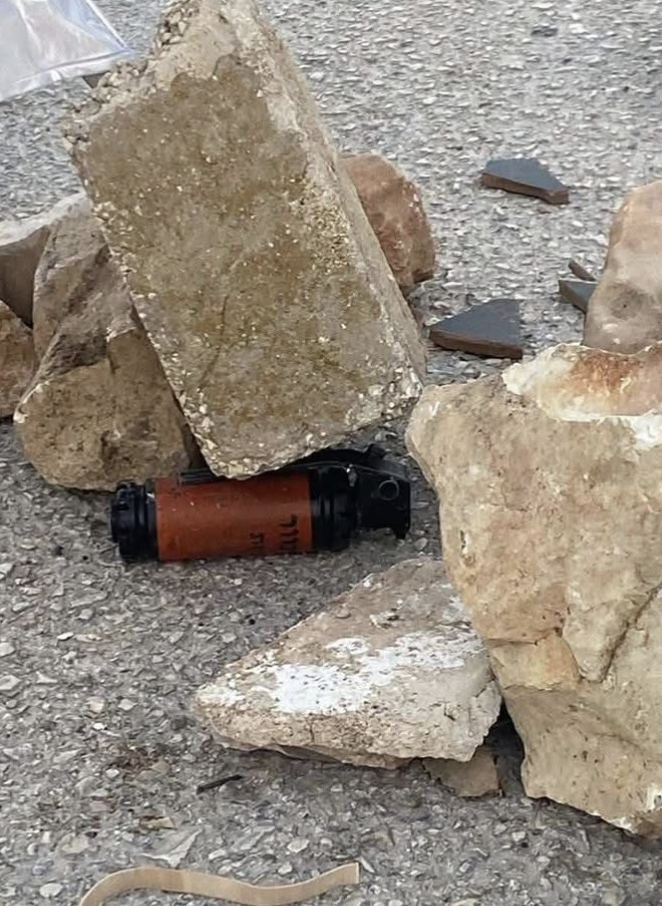
One friend reported that the Israeli army entered his sister’s home at 5:30 yesterday morning. They broke down the door, entered the house, opened drawers and cabinets, turned over furniture, and destroyed things before leaving. In some places, nearly every house is stormed by Israeli soldiers.
Many people report that they cannot sleep because of the sounds of rockets, and the shaking of windows and walls. There is a lot of dark humor. As rocket alerts went off on one friend’s phone, he said ‘you may be the last person I talk to’. I wrote to another friend, and said that nearly the whole world is praying it will end soon. She responded, ‘otherwise our end will be soon lol’.
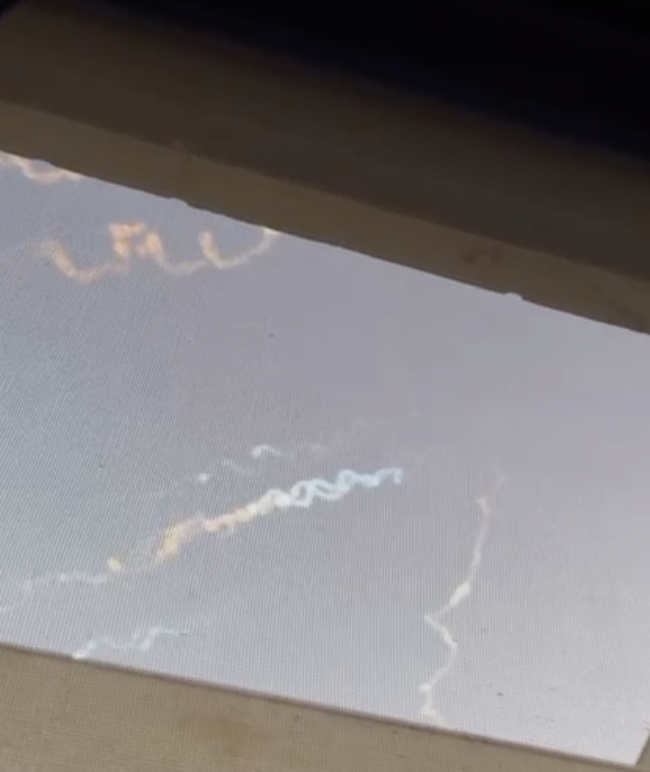
Palestinians continue to think of the people in Gaza. One person wrote this: ‘We are managing, habibti, barely got any sleep last night, one of them fell close by at some point in the middle of the night, but the only thing I could think of was that Palestinians in Gaza have been having almost two years of this, day and night. Anyway, they say tonight more is coming.’
As the world watches Iran, the assault on Gaza continues. Israel is still blocking aid from entering. People are literally starving to death. Israeli forces killed 56 people yesterday alone in Gaza, and more than half of them were shot by Israeli soldiers as they struggled to pick up meager rations of flour from so-called ‘aid centers’, the US and Israel-backed ‘Gaza Humanitarian Foundation' (GHF). Many believe the centers are simply a trap, to lure Palestinians to places where they can easily be shot, as they desperately try to get some flour. And as I’m getting ready to send this postcard, there is news that 51 starving people in Gaza were killed today by Israelis as they tried to get food. Internationally recognized aid groups say they have the capacity to deliver aid, if Israel would allow them to do so.
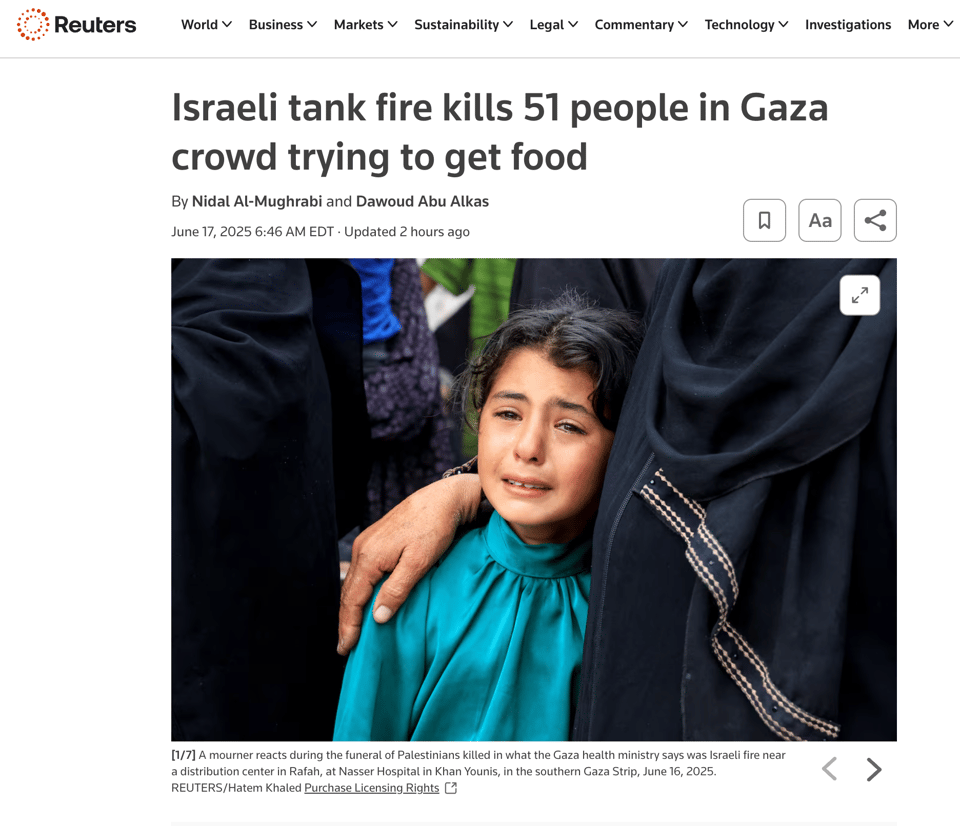
I will close here with these words from two brilliant Palestinian poets. First, Mosab Abu Toha:
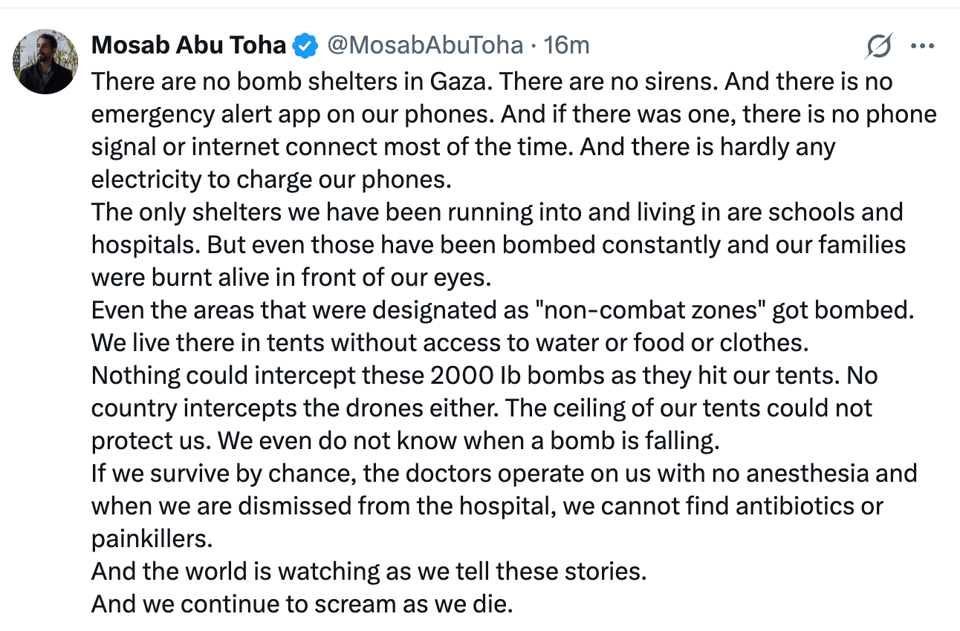
In Mohammed El-Kurd’s brilliant new book, Perfect Victims, he notes that Palestinian death is unremarkable. “We die a lot. We die in fleeting headlines, in between breaths. Our death is so quotidian that journalists report it as though they’re reporting the weather: Cloudy skies, light showers, and 3,000 Palestinians dead in the past ten days.” Palestinian deaths are considered to be the price of Israel’s security. "Israeli death, on the other hand, is another story, the main story. The love their dead receive is fiery, ardent, incandescent—it lights up the White House and the Eiffel Tower. The globe grieves Israeli loss without qualifiers and morphs that grief into fuel for genocide".
Salaam,
Nancy